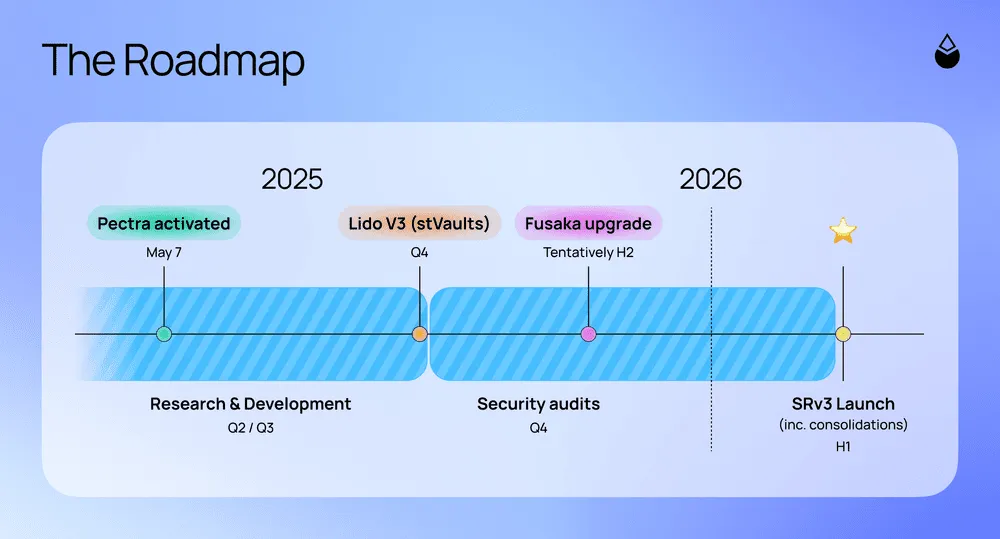- The upcoming SRv3 upgrade will shift Lido’s validator model from mounted 32 ETH devices to dynamic balances, enabling more straightforward validator administration.
- SRv3 will characteristic a wiser stake allocation machine per validator performance and wretchedness, built-in into Lido’s core structure.
Following the Ethereum Pectra tough fork in Would possibly 2025, the Lodo decentralized self sustaining group (DAO) is present process a first-rate technical shift. With the Pectra upgrade allowing higher validator administration, Lido will now consolidate plenty of validators true into a single higher unit, whereas bettering rewards and lowering down on community load.
In notify to spice up this transition, the Lido community has outlined a two-fragment rollout origin with its upcoming V3 upgrade. The modifications will assemble on the Staking Router, which capabilities as the protocol’s core coordination layer.
The Router connects particular person deposits to different modules at some level of the staking structure. Introduced in 2024 with SRv2, it modified Lido’s earlier model with a more modular influence, now that comprises Curated, Community Staking, and SimpleDVT modules.
This transfer with validator consolidation displays Lido’s broader solution to align with Ethereum’s evolving roadmap whereas striking ahead its occupy resilience and operational effectivity.
Lido to Upgrade Staking Architecture With SRv3 Upgrade
As per experiences, Lido is currently working on SRv3, the third model of its Staking Router, anticipated to launch one day in mid-2026. This upgrade will introduce strengthen for gigantic validators and enable validator consolidation, whereas marking a significant step beyond a conventional software update.
A central characteristic of SRv3 is its shift to a steadiness-essentially based fully accounting machine. Now not just like the present unit-essentially based fully model that treats validators in mounted 32 ETH increments, the contemporary machine will enable the protocol to manage validators as dynamic balances. This swap will streamline validator merging and toughen scalability, as mentioned in the weblog post.
Bright to this model would require substantial updates right thru the protocol’s handling of deposits, withdrawals, and reward distribution. Nevertheless, the anticipated advantages comprise higher flexibility, enhanced effectivity, and a more seamless particular person expertise.
Moreover, the SRv3 upgrade will also introduce order deposit performance, enabling contemporary stake to be routed straight away into validators thru the protocol. Initially, this characteristic shall be restricted to common participants, with the functionality for broader catch entry to over time.
Validator consolidations shall be managed by EasyTrack, Lido’s governance software for executing precise and efficient on-chain actions. This makes it well-suited for overseeing this severe upgrade.
SRv3 Upgrade Will Enhance Efficiency and Flexibility
Apart from to validator consolidation and order deposits, SRv3 will introduce a more sophisticated stake allocation machine. It will enable the community to distribute stake per validator performance and wretchedness profiles. Facets of this vogue have already been tested thru the Community Staking Module v2 and will now be built-in into the core protocol.
The strategy roadmap prioritizes validator consolidation, alongside with enhancements to stake onboarding, and enforcing optimized allocation suggestions. These modifications are designed to enhance Lido’s resilience, decrease operational charges for node operators, and mitigate stake focus dangers.

With pattern already in growth, the launch of SRv3 represents a first-rate advancement toward a more efficient, precise, and scalable staking infrastructure for the Lido ecosystem.

